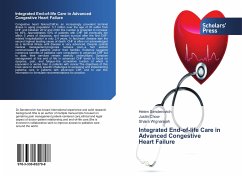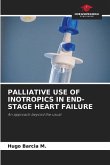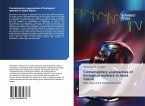Congestive heart failure(CHF)is an increasingly prevalent terminal illness in aging population. 5.7 million over the age of 20 suffer from CHF, and between 2012 and 2030 this number is projected to increase by 46%. Approximately 50% of patients with CHF will eventually die within 5 years of diagnosis, and median survival after the first CHF-related hospitalization is only 2.4 years. In fact,heart disease was the second highest leading cause of death. CHF is often not acknowledged as a terminal illness until disease is very advanced. Despite optimal medical management,prognosis remains poor-a fact seldom communicated to patients and/or their families. Evidence suggests numerous benefits of palliative care consultation in advanced CHF but to date, their services remain woefully underutilized. Symptom management at the end of life in advanced CHF tends to focus on dyspnea, pain, and fatigue-the cumulative burden of which is equivalent or worse than in patients with cancer.The objectives of this book were to identify specific challenges to accessing and implementing palliative care in patients with advanced CHF, and to use this information to formulate recommendations for practice.








